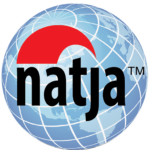Hello. I’m a British author and writer based in Tokyo, creating award-winning work for clients that have ranged from National Geographic and BBC Travel to CNBC, the Independent, and some 100 other media companies around the globe.
Feature length or short, I like to tell stories, whether that’s about the sumo bulls of the remote Oki Islands, Japan’s traditional paper-makers, or the cat that saved a Japanese railway. I enjoy more in-depth projects, too, working on a variety of travel- and culture-related branded content campaigns with companies such as BBC Story Works, CNN Create, National Geographic Creativeworks, Reuters Plus, and Jiji Press. These have included scripting an animated short for the BBC and traveling extensively to create in-depth social media content for a year-long Facebook project for the region of Japan that was devastated by the 2011 tsunami.
I’ve also edited and updated close to 30 books on Japan (for Fodors, Dorling Kindersley, Insight Guides, and others) and have authored seven of my own, including Japanese Inns & Hot Springs and the NATJA 2018 Gold-winning Japan Traveler’s Companion.
I primarily cover Japan but am happy to hop on a plane to other parts of the world for a good story. If you’d like to discuss potential projects, I’m always happy to hear ideas.
Portfolio: www.tokyofreelance.com/portfolio
Full bio: www.tokyofreelance.com
1. What got you into travel writing?
Chance. I was an English teacher by day but hoping to become a writer. I did all sorts initially to transition from teaching to writing full time (from business stories to SEO-rich content mill work) and it feels like my focus naturally narrowed to travel and culture – mostly because I enjoyed that the most, but also because that was the kind of work publications were most often contacting me for, especially after having been in a couple of well-known travel publications.
2. What’s the most challenging part of being a travel journalist for you?
Marketing. Finding time to pitch is hard when you are juggling deadlines, but it’s so important to keep sending ideas: to make sure you aren’t just taking assignments that come your way, but also working on story ideas of your own that you have a deep interest in.
3. What is one thing [equipment or personal item] you can’t go without on the road?
Tea bags! I’m a walking British cliché, but tea is essential.
4. What’s your most unusual and/or memorable travel experience?
Training with mountain ascetic hermits in northern Japan stands out. It included meditating in a loin cloth under a freezing waterfall and then jumping over small bonfires, with the flames getting dangerously close to one’s undercarriage.
5. How did you learn about NATJA and why did you join?
I was looking for a group where I could get to know other writers. Being based in Japan there aren’t that many others writing in English for international media and so it’s easy to feel somewhat isolated from the industry. When I applied, NATJA was the most open to writers in the early stages of a career, and it was a real confidence booster to be accepted.
6. What is the best piece of advice you could give to a rookie travel journalist?
I was very shy when I started, and always nervous about communicating with editors or asking other writers for advice. But most editors are normal, approachable people, so there’s no need to worry about asking what might feel to you like “amateurish” questions or seeking clarification on deadlines, content, fees, and so on. Good communication is the bedrock of a great working relationship. Likewise, experienced writers are often happy to answer questions or be a mentor – it’s flattering to be asked. Specifically for beginner writers in Japan, I put together a couple of posts on freelancing, and some of them apply to freelancers elsewhere: http://www.tokyofreelance.com/the-business-of-being-a-freelance-writer-in-japan-part-1/.

